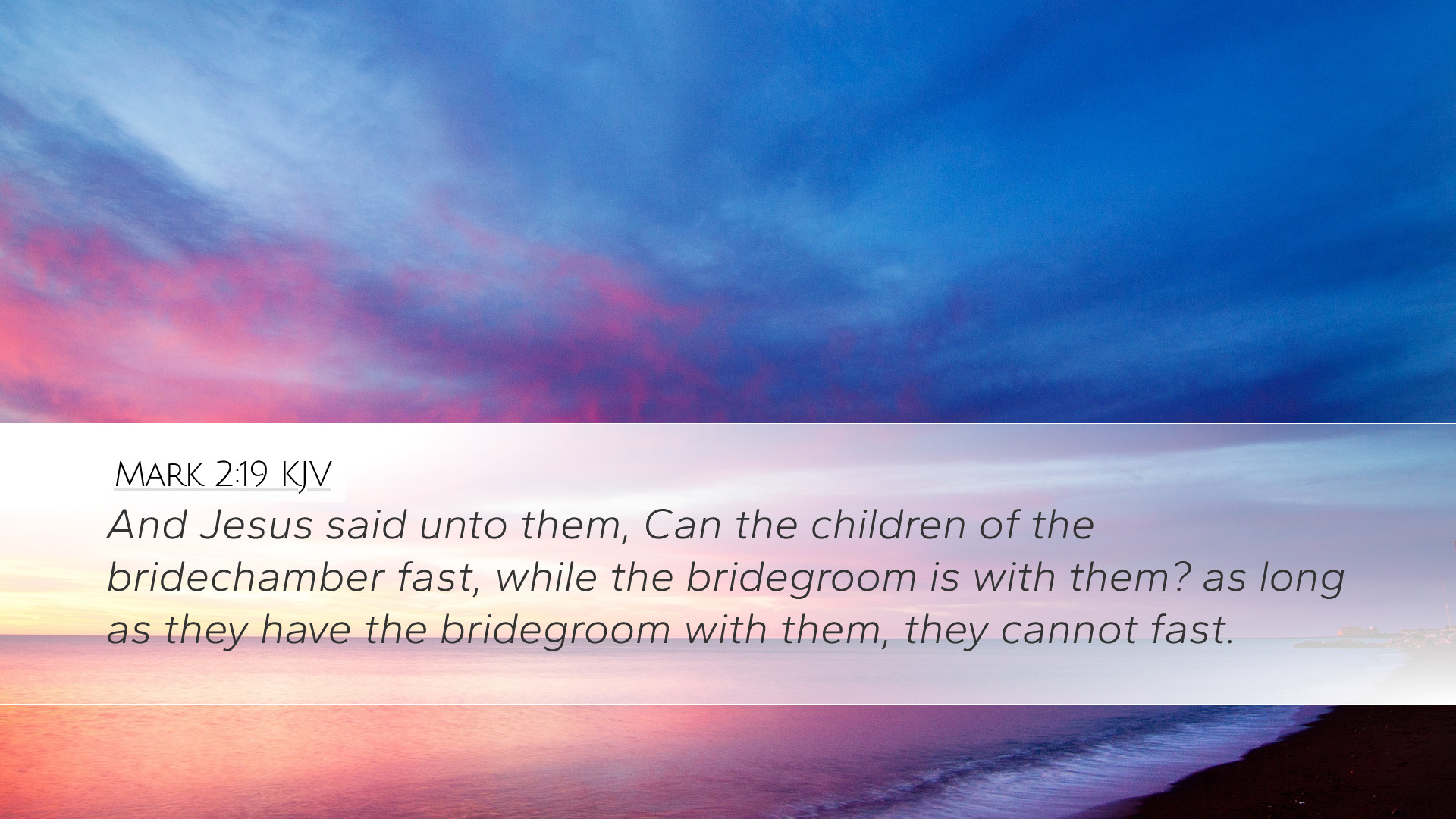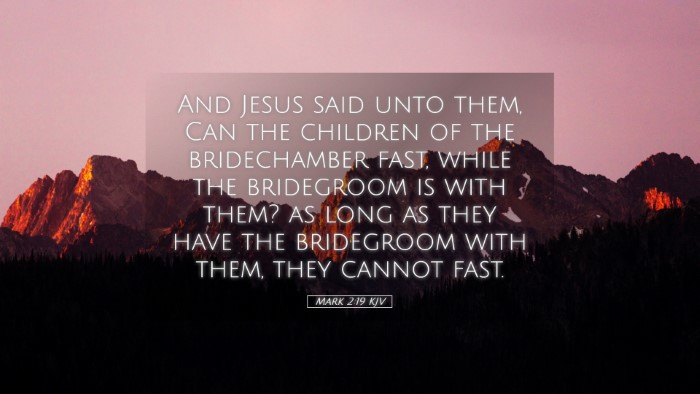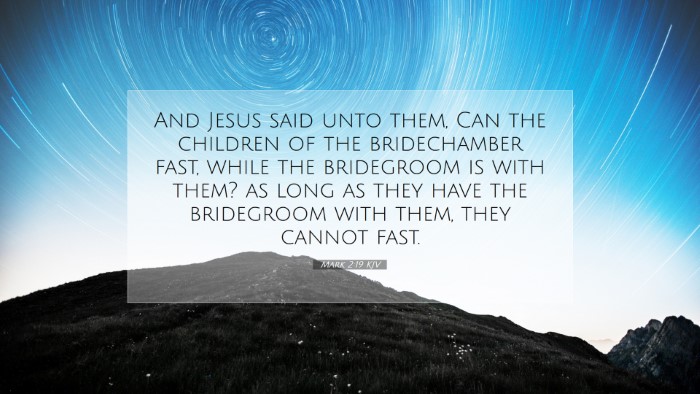Old Testament
Genesis Exodus Leviticus Numbers Deuteronomy Joshua Judges Ruth 1 Samuel 2 Samuel 1 Kings 2 Kings 1 Chronicles 2 Chronicles Ezra Nehemiah Esther Job Psalms Proverbs Ecclesiastes Song of Solomon Isaiah Jeremiah Lamentations Ezekiel Daniel Hosea Joel Amos Obadiah Jonah Micah Nahum Habakkuk Zephaniah Haggai Zechariah MalachiMark 2:19
Mark 2:19 KJV
And Jesus said unto them, Can the children of the bridechamber fast, while the bridegroom is with them? as long as they have the bridegroom with them, they cannot fast.
Mark 2:19 Bible Commentary
Commentary on Mark 2:19
Verse (Mark 2:19, KJV): "And Jesus said unto them, Can the children of the bridechamber fast, while the bridegroom is with them? as long as they have the bridegroom with them, they cannot fast."
Introduction
The context of Mark 2:19 highlights a critical moment in the ministry of Jesus. This encounter focuses on the questioning of Jesus regarding his disciples' failure to fast, which allows Jesus to reveal profound truths about his identity and the nature of his ministry.
Context and Background
Mark 2 captures the growing tension between Jesus and the religious leaders of His day. The Pharisees and John’s disciples had established a strict observance of fasting, which raised questions of Jesus' practices and beliefs. This verse is pivotal as it underscores Jesus’ unique role and the implications it has for religious observance.
Exegesis of the Verse
-
Children of the Bridechamber: In the ancient Jewish wedding custom, the “children of the bridechamber” refer to the friends of the bridegroom who celebrate during the wedding festivities. Adam Clarke notes that their joy and celebration are inconsistent with fasting, a practice often associated with mourning or solemnity.
-
The Presence of the Bridegroom: Jesus identifies himself as the Bridegroom, indicating His presence among them causes a time for celebration rather than mourning. Albert Barnes emphasizes that fasting is appropriate in times of distress or separation from God, not during the joyous presence of the Savior.
Theological Implications
This verse carries profound theological implications regarding the nature of Jesus' ministry and the expectations of His followers:
- Joy in Christ: The analogy of the wedding feast demonstrates that Christ's presence brings joy and fulfillment. Matthew Henry comments that the knowledge of Christ should inspire joy akin to that of a wedding celebration. It challenges believers to seek joy in their relationship with Christ rather than mere rituals without heart.
- Renewal of Faith Practices: Jesus is presenting a paradigm shift regarding religious practices. Clarke suggests that this indicates a transition from the old forms of religion to a new relationship with God through Christ. Traditional practices must be reconceived within the context of Christ’s redemptive work.
Application for Today’s Believers
The message in Mark 2:19 remains relevant for modern believers who often wrestle with the tension between tradition and the dynamic work of Jesus:
- Celebration Versus Ritual: While spiritual disciplines such as fasting are valuable, they should not overshadow the joy of a vibrant relationship with Christ. Believers today are called to experience and share the joy that comes from knowing Jesus.
- Understanding Our Seasons: There are appropriate times for lamentation and fasting, especially in the face of sin or loss. However, the presence of Christ in our lives invites us to celebrate divine grace and relational intimacy instead of merely adhering to rules and obligations.
- Evangelism Through Joy: Just as the disciples were to celebrate the presence of the bridegroom, Christians are to reflect this joy to a world in need of hope. Evangelism flows from the joy of salvation, as witnessed in the lives of those who know Christ intimately.
Conclusion
Mark 2:19 compels us to reconsider the interaction of joy and discipline in our faith. The presence of Jesus—the Bridegroom—should mark our lives with celebration and purpose. As we move forward, may we embrace both the joy of His fellowship and the meaningful practices that support our spiritual growth, ensuring that our traditions always point us back to the heart of Christ.


